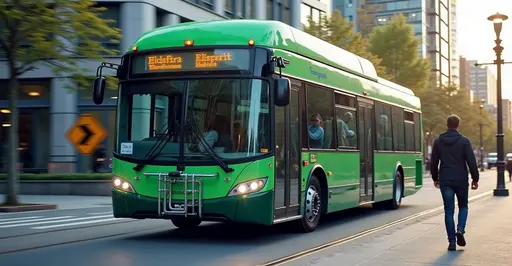Transit agencies globally are expanding electric bus fleets to reduce emissions. TransLink's $479M investment adds 102 electric buses, cutting 8,200 tonnes of CO2 yearly. Electric buses offer environmental and operational benefits despite infrastructure challenges.

Global Shift to Zero-Emission Public Transport
Public transit agencies worldwide are accelerating the adoption of electric buses as part of ambitious sustainability initiatives. Major cities from Vancouver to Vienna have announced significant expansions of their electric bus fleets, signaling a decisive move away from diesel-powered vehicles.
Recent Major Investments
TransLink in Metro Vancouver secured $479 million to add 102 battery-electric buses to its fleet. This expansion will replace aging diesel buses and includes 64 new chargers at the Port Coquitlam Transit Centre. By 2030, TransLink's electric fleet will grow from 19 to 178 buses, reducing annual emissions by 8,200 tonnes. "We're replacing aging diesel buses with a diversified fleet that serves customers sustainably," said CEO Kevin Quinn.
Similar initiatives are underway globally:
- New York's MTA is converting the Jamaica Bus Depot into its first fully electric facility
- London plans to operate a completely zero-emission bus fleet by 2034
- Shenzhen, China already operates 16,000 electric buses - 99% of its fleet
Technology Advancements
Modern electric buses feature ranges exceeding 350km per charge, with rapid-charging technology enabling 80% battery replenishment in just 5-8 minutes. Regenerative braking systems capture kinetic energy during deceleration, improving efficiency. Aluminum construction makes buses 3,000kg lighter than steel counterparts, extending component lifespan.
Charging infrastructure innovations include:
- Overhead pantograph chargers at bus stops
- Wireless inductive charging pilot programs
- Sweden's testing of in-motion charging roads
Environmental and Economic Benefits
Beyond eliminating tailpipe emissions, electric buses reduce noise pollution by 50% compared to diesel models. Operators report 30-40% lower maintenance costs due to simpler mechanics. The European Union estimates each electric bus saves approximately 1,690 tons of CO2 over its lifetime.
"This is about building cleaner, more livable cities," said Metro Vancouver Board Chair Mike Hurley. "Municipalities are prioritizing low-carbon transit solutions to create sustainable communities."
As battery costs continue to decrease 15% annually and charging infrastructure expands, analysts project 50% of global municipal buses will be electric by 2030.
TransLink's electric bus initiative | Electric bus technology overview

 Nederlands
Nederlands English
English Français
Français Deutsch
Deutsch Español
Español Português
Português

